7 Prison-themed K-dramas (+ 1 Film)
Reviews of: ONE ORDINARY DAY | PRISON PLAYBOOK | BIG MOUTH | MOVE TO HEAVEN | ITAEWON CLASS | JUVENILE JUSTICE | PAYBACK | WAY BACK HOME
Heyyyy! Daylight savings was last week (for U.S. residents) and I’m kinda sorta accustomed to spring ahead time now. And … the weekend is finally here. So, in my world, that means deciding what K-dramas my family will watch this weekend. Are you doing the same?
For this newsletter, I am reviewing K-dramas that reflect on characters who have (or had) been … imprisoned. (And please note that not all of these are suitable for young children.) I promise you that they’re not as depressing as the subject matter might suggest. (Although, that said, some of them actually are.) So here we go:
📺 Big Mouth (빅마우스) ☆☆☆
📺 Itaewon Class (이태원 클라쓰) ☆☆☆
📺 Juvenile Justice (소년 심판) ☆☆☆
📺 Move to Heaven (무브 투 헤븐: 나는 유품정리사입니다) ☆☆☆½
📺 One Ordinary Day (어느 날) ☆☆☆½
📺 Payback (법쩐) ☆☆½
📺 Prison Playbook (괜찮아, 사랑이야) ☆☆☆
📽️ Way Back Home (집으로 가는 길) ☆☆
Anchor links have been added for those of you who read my work via the app. (Sorry, but Substack doesn’t allow this option on the emailed newsletters.)
As always, I’ve rated these shows on a ☆☆☆☆ scale. Let me know if you’ve seen any of these K-dramas (and film). I’d love to read your comments, regardless of whether you liked (or disliked) what you watched!
“One Ordinary Day”
☆☆☆½
Kim Hyun-soo (played by Kim Soo-hyun)
Shin Joong-han (played by Cha Seung-won)
↑Note: Korean names denote the surname followed by the given name.
The entire premise of this series centers on a murder. Since this show has been out for four years already, and since it’s based on a well-known 2008 British series (“Criminal Justice”) with the same plot, I’m going to tell you about the event that starts this gripping series. If you don’t want to know, I advise you come back to read this after you’ve watched the show. Regardless, I highly recommend this K-drama, which had my stomach in knots for much of the eight episodes.
Hyun-soo (Kim Soo-hyun) is a college student in his early 20s. He’s cute, asthmatic and isn’t a loner. When his friends invite him to a party that will be full of pretty girls, Hyun-soo declines, because he has to take part in a study group. When the latter is canceled, Hyun-soo excitedly tells his friends to count him in. Unfortunately, he can’t catch a ride with them or pay for the $100 cab fare it would cost.
So instead, he borrows his father’s taxi. Stopped at a light and trying to figure out how to turn off the “for hire” sign, he’s surprised when a beautiful woman about his age gets into his cab. Though he tries to convince her to leave the cab, she wears him down with her forthright persistence (and aforementioned beauty). Gook-hwa (Hwang Se-on) asks him to take her to the Han River, where they enjoy ice cream (that she encouraged him to steal) and beers.
And then she invites him into her beautiful and expensive home.
There, Gook-hwa offers him tequila and drugs — which he takes — and she initiates a game of Knife, where one person lays their hand down on the table and hopes the knife-wielding person doesn’t stab them. She expertly misses his fingers and tells him to do the same to her. He accidentally stabs her hand, which elicits a surprising reaction. She is turned on. And though this should have been his first clue that he should just go back home, he and she head upstairs and have sex. (Make no mistake about it. While Gook-hwa may be a bad influence, Hyun-soo wasn’t forced to do anything he didn’t want to do.)
Much later, Hyun-soo wakes up downstairs, helps himself to some water, gets dressed and heads back upstairs to say goodbye to Gook-hwa. But she is lying in pool of blood on her bed. She is dead.
Hell begins here for Hyun-soo. Prosecutors and the police say that the actions he took after finding her stabbed to death proves he is the murderer. Hyun-soo freaked the fuck out and panicked. Instead of calling the police or an ambulance, he runs out to his car to escape. But his car keys are inside his jacket, which is still inside the house. He breaks a window to let himself in, grabs his jacket and notices the knife they used to play Knife. He takes that. And knowing how devastating the scenario makes him look, he sloppily cleans up some of the incriminating DNA on the counter as well. And as he speeds and swerves on his way home, he is stopped by a police officer who is doing random DUI tests.
Most of this happens within the first 20 minutes of the premiere episode. The truly stressful element about this series is that he could have done everything he was supposed to have done, but no one would’ve presumed he was innocent. His DNA was everywhere. There were signs of a struggle (even though it was just two horny people knocking things over in a hurry to get to the bedroom).
The part of the series that bothered me was how haphazard the investigation was, because I know things like this happen in real life. As one of the prisoners he will later meet tells him, people like them with no money or prestigious family connections are never given the benefit of the doubt. They aren’t presumed innocent until found guilty. They’re presumed guilty from the start.
But there were some frustrating oversights that even a rookie attorney or police officer would’ve noticed. Hyun-soo is left handed. His lawyer Joong-han (Cha Seung-won) doesn’t question the prosecution’s forensics team about which hand was likely used to kill the woman. Only later does Joong-han’s ex-wife, Jeong-ah (Kim Young-ah)— who works at the National Forensic Service — deduce that the murderer was right handed. Therefore Hyun-soo most likely wasn’t the culprit.
The maddening thing is that though there are other suspects, no one except Hyun-soo’s defense attorney bothered to check into their alibis. Why did no one question Hyun-soo’s friends, who he was headed to meet? While not an alibi during the time of the murder, they could’ve confirmed that yes, he was on his way to join them at a party. And while he technically did take his father’s cab without permission, his dad never pressed charges. So was it legally a theft? Or a son borrowing his parents’ car without authorization?
While Joong-han is trying to prove his client’s innocence, Hyun-soo is taken under Ji-tae’s wing in prison. The alpha prisoner who is feared by everyone, Ji-tae is tough and pragmatic, but most definitely not a good guy. Everyone has a purpose and he sees potential in Hyun-soo to be beneficial to him. Played by Kim Sung-kyu (“Kingdom“), Ji-tae is smoking hot in the same way that Park Hee-Soon was in “My Name.”
Hyun-soo’s nemesis in prison is a repeat offender played by Yang Kyung-won, who was so lovably weird in “Crash Landing on You” and “Vincenzo.” He is chilling here. (You can also catch him in this year’s “Big Mouth,” where he plays another character of dubious morals.)
“One Ordinary Day” reminds me a bit of “Mouse,” where you don’t know who the killer is. Hyun-soo wasn’t completely innocent: he willingly got drunk, took illegal drugs and ran from the scene of a crime without calling for help. While he has no memory of killing Gook-hwa, he also has no memory of not killing her.
As Hyun-soo, Kim Soo-hyun is superb in a difficult role where he has to be sympathetic, but also could be a cold-blooded and manipulative killer. He is required to cry in a manner that allows viewers to feel his panic and fears. And Kim comes through again with his nuanced acting, proving he is one of the best actors of his generation.
Korean vs. International Age: It’s mentioned several times that Hyun-soo is a 25-year old college student, which sounds old, right? A few things about that. Of course there are some students older than the norm. Some may have had to take time off to save up for tuition. Some young men fulfill their mandatory military duty right after high school or after completing a year or two of college. However, in both the dialogue (and the correct subtitles), they are referring to Hyun-soo’s Korean age. On one of his legal documents, viewers can see that he was born in August 1997. And in Episode 8, we see that part of his trial is taking place in May 2021. So he is actually only 23 years old at the time he was arrested for murder and put on trial. (For a more elaborate explanation of Korean vs. International Age, read my “Twenty-Five Twenty-One” essay.)
Cliffhanger: The ending includes a cameo appearance by Kim’s “Moon That Embraces the Sun” co-star Kim Yoo-jung, setting up the possibility of a second season focusing on a new lead actor and the crime she’s accused of committing.
Not suitable for young children: There is a lot of violence, drug use and minimal nudity (female breasts, male backside). I would say that it’s suitable for children 16 and older.
Airdates: Eight hour-long episodes aired on Coupang Play from November 27 to December 19, 2021.
Spoiler Alert: Hyun-soo didn’t commit the murder. The victim’s former lover — a drug rehabilitation doctor — also supplied her with opioids like fentanyl. He killed her after she found out he was married and broke up with him. When caught, he confessed.
We see that Hyun-soo is now out of prison, but he is not a free man by any means. After having been described as a murderer on the news for months, that’s how people view him. Neighbors graffiti his parents’ home and some passerby recoil at the sight of him. The last we see of him is on top of a high-rise building, smoking a cigarette. He throws his cigarette butt off the roof and looks down. The viewers are left wondering whether he is contemplating to die by suicide or will survive this trauma.
Also, I was truly surprised when another prisoner killed Ji-tae, who seemed invincible until the very end.
“Prison Playbook”
☆☆☆

Kim Je-Hyuk (played by Park Hae-Soo)
Lee Joon-Ho (played by Jung Kyung-Ho)
↑Note: Korean names denote the surname followed by the given name.
The premise of “Prison Playbook” didn’t interest me initially, which is why I waited to watch it. But I’m glad I did. This dramedy had so many moments that made me sad, angry and ridiculously happy.
Je-Hyuk (Park Hae-Soo) is South Korea’s most famous baseball player and is headed to the U.S. to play in the MLB. One night, he goes to check on his younger sister and hears her screaming. She is being attacked by a rapist. In the ensuing struggle, Je-Hyuk beats him unconscious.
It seems like a no-brainer: His sister was being attacked. He ran after, caught and fought the attacker. The rapist did all he could to pummel Je-Hyuk as well. But the court system deemed that his reaction of grabbing a trophy and hitting the man on the head in self defense was … too much. He is sentenced to a year in prison.
Excuse me?
Never mind that I don’t think that’s how the ruling would have gone in real life for a squeaky clean athlete, who had never caused any trouble on or off the pitching mound. But this sets the premise for how he survives — and even grows to thrive — in prison.
Brought to you by the same showrunners responsible for the superb “Reply” trilogy, as well as the smash hit “Hospital Playlist,” “Prison Playbook” shares many of the same actors and idiosyncrasies. Instead of a goat … or was it a sheep? … bleating as in the “Reply” series, we hear a small whistle. But the most important thing it shares is the storytelling.
MILD SPOILER ALERT: The kindly prison guard (Sung Dong-Il) who seems to be in Je-Hyuk’s corner is really just a criminal blackmailing prisoners for money; the helpful prisoner (Joo Seok-Tae) who seems in awe of his celebrity is a rapist whose ultimate goal is Je-Hyuk’s body. And the hardened lifers (Choi Moo-Sung; and the actor who played the elderly man who was in charge of the incinerator — I can’t find his name! Argh!) who others view as trash show more morality than the righteous do-gooders.
It’s no spoiler to point out that Je-Hyuk’s guardian angel is prison guard Joon-Ho (Jung Kyung-Ho), a childhood friend who excelled at baseball, but gave up that dream.
As Ji-Ho — his former coach’s daughter who is now his ex-girlfriend — Krystal Jung balances the right amount of nuance as a strong-minded college student who wants to pave her own way into the future, with or without Je-Hyuk. And honestly, the way he behaved to her — not calling for days when his team lost, being clueless about so many things, and being a man-child all too often — Je-Hyuk wasn’t exactly great boyfriend material.
There are so many stories going on here and just about all of them are strong enough to have been the central plot: a military officer (Jung Hae-In) accused to assaulting an underling so severely the latter died; a drug addict (Lee Kyu-hyung) who is in and out of prison, rather than a drug intervention program that could be more helpful.
Though this series doesn’t shy away from showing the brutal side of prison, in many ways it was like “Hogan’s Heroes,” which depicted dense, but non-threatening prison guards. For most of the series, the prison’s warden (played by Ahn Kyung-Chan) seemed like an overgrown child, whose biggest joy in life was being positively portrayed in the press. But when push comes to shove by his underling, he shows that behind his clueless Baby Huey demeanor lies a man who knows exactly what’s going on and how he wants to run his prison.
As for the prison itself, it’s about the cleanest facility I’ve ever seen, with prisoners who have their own privacy toilets in their cells. They are also served food that looks quite delicious. That’s when you know this is really a work of fiction.
No … This couldn’t possibly happen: With dramas, viewers often have to go with the flow and not think too much about reality. Or your fun will just be inevitably spoiled. But Je-Hyuk’s one request for signing with a baseball team once he’s released from prison has nothing to do with money and a multi-year contract. Rather, he said he will sign with the team that can control the media and not write about his sister in any articles about him. I know that many celebrities worldwide want to control the press. But there is no baseball team in the world that could do that, especially initially when he’s making his comeback. His story was too well known not to mention why he was in prison.
Meta Moment: There’s a tongue-in-cheek reference to Park Bo-Gum. When Choi Moo-Sung, who played Park’s father in “Reply 1988,” brags to his fellow inmates that he used to look like Park when he was younger, they stare at him incredulously. ㅋㅋ
Airdates: Sixteen 90-minute episodes aired on tvN from November 22, 2017 to January 18, 2018.
Spoiler Alert: The series ends with Je-Hyuk returning to his team as a baseball pitcher. We see him on the mound, with the crowd roaring its approval. But his team lost. I was so happy that the show didn’t create him as being back to his pre-prison form right off the bat. But it showed that he had already won over the public … and Ji-Ho.
“Payback”
☆☆½
Eun Yong (played by Lee Sun-kyung)
Park Joon-kyung (played by Moon Chae-won)
Jang Tae-chun (Kang Yoo-seok)
↑Note: Korean names denote the surname followed by the given name.
The early episodes of “Payback” held promise for a truly compelling thriller with the always great Lee Sun-kyung in the lead role. But the storylines get progressively more convoluted as the show progresses.
Lee plays Eung Yong, an ambitious man with a photographic memory when it comes to numbers. He can read an entire ledger and correctly recall everything in it.
After a stint in juvenile detention where his physical prowess served him well, Eun Yong vows to never end up behind bars again. But when you’re poor and uneducated, with no parents to support you and an older sister and nephew who are financially struggling, the options are minimal.
He chooses to work for Myung In-joo (Kim Hong-pa), who operates a lucrative and illegal money-lending business. When Myung’s clients can’t pay him back on time — which he’s counting on — his thugs violently assault them before forcing them to immediately sign over their businesses to him. (This storyline is also represented in “Bloodhounds.”)
At first a foot soldier for Myung, Yong’s savvy aptitude for numbers gets him promoted to a higher position with Myung. And it’s not long before the student becomes the teacher … and enemy. Yong leaves South Korea for a decade or so, building even more wealth overseas and spending his time making deals in Mongolia. When he returns to South Korea, it’s with a portfolio of millions (maybe billions?) and a detailed plan to get revenge on everyone responsible for killing his surrogate mother Yoon Hye-rin (played by Kim Mi-sook, who was so good in last year’s “Little Women“) and disguising her death as a suicide.
Hye-rin’s daughter, Joon-kyung (Moon Chae-won), is a former prosecutor and a military judicial officer. She and Yong met in their teens when they stood up against a gang of men sexually harassing a woman on the train. Sent to jail, she was expeditiously bailed out by her mother, who then insisted on becoming Yong’s guardian. The three quickly became a de facto family, with Hye-rin knowing the boy is involved in illegal activity, but not interfering with his actions.
The series loses momentum as Yong and Myung (and his corrupt prosecutor son-in-law Hwang Ki-seok (Park Hoon) play cat and mouse games for the duration of the K-drama. Yong has a brilliant plan mapped out, gets the right people to double cross Myung and Co. … and ultimately ends up with the plan blowing up in his face. One time, this was fine. Twice, OK. But after the third time, viewers may be left wondering how bright this numbers genius actually is.
Actually, many of the cast members appear to be lacking in brain power. When Ki-seok creates a suicide note — for someone who doesn’t realize he’ll be killed — he wears gloves so he doesn’t get his own fingerprints on the paper, folds it up and seals it in an envelope. OK. But wouldn’t even a forensic novice wonder, “Hey, how come there are no fingerprints at all on this letter?!”
One of my favorite story arcs dealt with Yong and his childhood friend, whom he met when they were locked up in juvenile detention. Jin-ho (Won Hyun-joon) is the one who got Yong into Myung’s gang. But lacking the smarts that Yong has, he never progresses beyond being a lackey who beats up whoever Myung tells him to.
Yong’s nephew, Tae-chun (Kang Yoo-seok), is also involved in his uncle’s plans. He graduated from a smaller law school outside of Seoul, so he has been automatically ruled out as someone who can move up the ranks at the prosecutor’s office. We’re never quite sure how dirty he’s willing to get and how much Yong will use him to get what he wants. And that’s where some of the best dramatic moments occurred.
Airdates: Twelve hour-long episodes aired on SBS from January 6 to February 11, 2023. I watched this on Prime Video.
Spoiler Alert: As it turns out, Yong had everything planned out from the get go. All the times it seemed like he had been outmaneuvered by Myung and Ki-seok was part of his plan.
There is a scene when Myung orders Jin-ho to capture and kill Yong. We all know that Jin-ho is not going to kill his friend. He sends Myung a video of Yong being covered with dirt, implying that he is as good as dead and buried. But surprise, he’s alive! When this becomes clear, why did Myung allow Jin-ho to live? It’s not like Jin-ho was irreplaceable.
Also, the entire series is full of people who have admitted to prosecutors and the press that they have committed serious crimes. Perjury. Money laundering. Involvement in the deaths of others. And yet … they are allowed to go back to their prior positions. Hello? Do they not know how how petty netizens are? Korean antifans stalked a celebrity for years because they didn’t believe he had graduated from Stanford University. We’re actually to believe that citizens are A-OK with Ki-seok’s admissions of guilt and his reinstatement as a prosecutor? Not only that, but he has political ambitions, with the Blue House (i.e. the presidency) as his goal. And no one thinks that having a criminal father in law would hinder his chances? Hello?
Even Joon-kyung, who had admitted to falsifying documents under Ki-seok’s order, is allowed to return as a prosecutor. Yes, we like her. But ultimately she had a choice and she chose to lie in order to help her mother. (FWIW, I’m not blaming her on a personal level. But legally, she committed an egregious crime.)
Everyone who should’ve ended up in prison ended up there, thanks to Yong, Joon-kyung and Tae-chun, who played by the books and was able to help his uncle get justice.
“Move to Heaven”
☆☆☆½
Sang-Gu (played by Lee Je-Hoon)
Geu-Ru (played by Tang Joon-Sang)
↑Note: Korean names denote the surname followed by the given name.
Former firefighter Jeong-Woo (Ji Jin-Hee) and his son, Geu-Ru (Tang Joon-Sang), run a business called Move to Heaven. They are known as trauma cleaners and they are called in to deal with the after effects of death. A young man injured on the job — but not having the money to go to the hospital — bleeds out and dies in a dingy room that needs to be stripped clean before it can be rented out again. An elderly woman dies alone in squalor. Meanwhile, her adult son who had neglected her in her old age is eager to gain control of all her assets. And in one of the more gut-wrenching vignettes, a Korean adoptee is deported to Korea after committing a petty crime in the United States.
With his meticulous eye for detail and inability to give up, Geu-Ru is like a young detective, whose brilliant mind allows him to solve puzzles that others can’t see.
After Jeong-Woo dies, 19-year-old Geu-Ru is now an orphan. He is left in the care of his gruff, estranged uncle, Sang-Gu (Lee Je-Hoon), who doesn’t know what to make of him. Geu-Ru, who has Asperger’s Syndrome, is a perfectionist who doesn’t like to deviate from his routine. He sits in the same spot for breakfast every morning and gets agitated if his sunnyside up egg yolk isn’t perfect. Sang-Gu is rough around the edges with a chip on his shoulder. Though flashbacks will show him in a loving relationship with his elder half brother, he has nothing but contempt now for Jeong-Woo, who he believes failed in protecting him (and their mother) from his abusive father.
Bloodline has an interesting place in this K-drama. Though Sang-Gu had spent time in jail, he is considered the best guardian for Geu-Ru, because he is the young man’s only living relative. (Geu-Ru’s mother died when he was young.) But in the story arc involving the adoptee Mattthew Green (played by Kevin Oh), his having been adopted seems to wipe out his Koreanness.
With no skills other than fighting, Sang-Gu takes part in illegal, underground boxing/MMA matches, where the only rule is to survive. The matches are run by a woman, who this series sets up as the bad guy. And she is a horrible person. But in reality, most of the men who participate in these fight clubs do so because they want (what they think is) an easy way to earn a lot of money fast. And she gives them the forum.
One of the highlights of this series is a backstory that shows Sang-Gu mentoring a high school student who had been bullied. Soo-Cheol (Lee Jae-Wook) ends up in a coma that Sang-Gu feels responsible for. And this is one reason why he almost doesn’t want to improve his life. Living a miserable life makes him feel less guilty about Soo-Cheol.
As the uncle and nephew, Lee Je-Hoon and Tang Joon-Sang (“Racket Boys,” “Crash Landing on You“), respectively, are superb. Lee plays his brutal and slovenly character with charm and humor, while Tang articulates with his movements and voice what Geu-Ru is going through. I watched this series around the same time as “Racket Boys,” where Tang plays a brash character, whose confidence was equaled only by his ability to deliver what he bragged about. Just 17, he is such a talented actor, with an incredible range.
Ultimately, Geu-Ru is able to get closure on his father’s death, which gives him peace of mind.
“Move to Heaven” is a beautiful and at times cruel series that tells so many different stories, but each is told with care. This K-drama also shows how you don’t need things to remember a person. But having a few treasured mementos can help the survivors go on with life. The way Jeong-Woo — and later Geu-Ru — picked the most important items and fit them into a box about the size of a milk crate was commendable and incredibly touching. When I think of what I’d want my family to have to remember me by, it’s not any furniture or a car. Rather, it’s photos and ticket stubs from things we shared together that are most meaningful, to me.
Airdates: Ten episodes were released on Netflix on May 14, 2021. Each episode was between 45- to 60-minutes long.
Spoiler Alert: Sang-Gu and Jeong-Woo are half brothers, who had the same mother. While in high school, Jeong-Woo tried to protect their mother and Sang-Gu from the latter’s abusive father. After both of Sang-Gu’s parents die, Jeong-Woo promises to raise him so that the child isn’t sent to an orphanage. They arrange a day and time to meet. But Jeong-Woo never arrives. Unbeknownst to Sang-Gu, the older brother had gone to a department store to buy the little boy Nike shoes for his birthday. When the building collapsed, he was trapped in the rubble. And by the time he was rescued and recovered, Sang-Gu had been taken to an orphanage. After Jeong-Woo’s death, Sang-Gu discovers what had happened to his brother, and finds dozens of new Nike shoes — each a little bigger than the previous year’s — that Jeong-Woo had bought every year for his birthday. There are also stacks of flyers from when he was desperately trying to find his brother.
The Matthew Green storyline seems to have been based on the recent cases of Korean adoptees who have been deported to Korea, because their irresponsible adoptive parents never bothered to do all the paperwork to finalize their U.S. citizenship. Most Korean adoptees who are adopted internationally are not raised to speak Korean. So it’s particularly cruel to return a person to a country where they know no one, aren’t familiar with the culture and can’t speak the language.
The series finale was perplexing. A high school girl walks up to Geu-Reu to hire Move to Heaven…for herself. There is no explanation. Does she plan to die by suicide? Is she terminally ill and wants to spare her family? The girl looks peaceful and content, while Geu-Reu looks uncomfortable and confused, much like I was.
“Big Mouth”
☆☆☆
Park Chang-ho (played by Lee Jong-suk)
Ko Mi-ho (played by Im Yoon-ah)
↑Note: Korean names denote the surname followed by the given name.
Let me start this review by noting how perfect the cast was for this series, especially the lead actors Lee Jong-suk (as a lawyer on a losing streak) and Girls’ Generation’s Im Yoon-ah as his pragmatic wife (who’s a skilled nurse). There was not a moment where I didn’t believe that this couple was besotted with each other. Even when they argued, it was obvious that they cared so very much about each other.
At the start of this series, Chang-ho is a lawyer famous for losing most of his cases. He earns the nickname of Big Mouth, because he isn’t afraid to voice his opinions, even if they’re not fully developed at the time he speaks. Hired by the mayor of Gucheon, the case seems too good to be true. Choi Do-ha (Kim Joo-hun) wants him to defend three of his frenemies (a surgeon, the son of a hospital chaebol and the hospital’s attorney), who may or may not have killed the man found in the trunk of their car. The key to the murder is an elusive study done by the deceased, which could incriminate the men, as well as the elite hierarchy to which they’re tied.
The powerful trio already has the trial planned and the appropriate people bribed and in their pockets. Chang-ho was essentially hired to be an obedient frontman who only has to do what he is told. His payoff will be enough money to not only pay off his debts, but to have a nice little nest egg left over for his family, which includes his doting father-in-law Gi-kwang (portrayed by the always magnificent Lee Ki-young).
Chang-ho knows that the case he has accepted isn’t on the up and up. Everyone involved is at best suspicious, and at worst depraved. But the money is too good to turn down.
What happens from here on out is a thrilling spiral of events that includes Chang-ho being mistaken for an elusive crime boss called Big Mouse, his being imprisoned in a brutal prison, so many double crosses that you’ll need a spreadsheet to keep track, and an ending that ties everything together — albeit sadly, and a bit too rushed.
Amidst all the drama in this series, there are some lighter moments, especially when Chang-ho and his father-in-law team up against Mi-ho’s more stringent nature. But what the series drills home is the differences between the haves and the have nots. Criminals with money and power get VIP treatment in prison, while the rest are given sub-human treatment. (That theme is also explored in “One Ordinary Day,” another K-drama I watched around the same time.)
Like Kim Soo-hyun, Lee made his post-military debut with a cameo appearance before starring in a critically-acclaimed K-drama. Kim made a much-talked about appearance in IU’s “Hotel del Luna,” before tackling “It’s Okay to Not Be Okay.” Likewise, after Lee finished his mandatory military duty on January 2, 2021, he made a special appearance in the film “The Witch: Part 2. The Other One,” before signing up for “Big Mouth.”
Airdates: Twelve hour-long episodes aired on MBC TV from July 29 to September 17, 2022.
Spoiler Alert:
We know early on that Chang-ho and Mi-ho are married. But after Mi-ho is exposed to contaminated toxic waste that a company is illegally dumping, she dies of lymphatic cancer. Honestly? The ending was so sad that I need to share this photo of the couple in their happier, more hopeful days.
“Juvenile Justice”
☆☆☆
Shim Eun-seok (played by Kim Hye-soo)
Cha Tae-joo (played by Kim Mu-yeol)
↑Note: Korean names denote the surname followed by the given name.
There has been much debate in South Korea about how to punish and rehabilitate underage criminals. “Juvenile Justice” deals with these issues in a taut manner, using the law to mete out judicial revenge.
Shim Eun-seok is a tough judge working in the juvenile court system. She makes no bones about the fact that she despises juvenile offenders. To her gentler colleague, Cha Tae-joo, she at first appears unreasonable and unwilling to see the potential in children.
In a different series, the characters would’ve been reversed, with the hard-nosed role going to the man and the more vulnerable part going to the woman. But this K-drama works precisely because Kim Hye-soo’s portrayal goes against the grain of society’s expectations for how women are supposed to behave and be.
“Juvenile Justice” begins with a horrifying case. A young teenager shows up bloodied at a police station and confesses that he has killed a younger neighbor who lives in his apartment complex. He also mutilated the child’s body. Though the police find it odd that a self-proclaimed murderer comes forward, they also don’t see a reason not to take the boy at his word. But because the child is under 14 — the age where criminals can be sentenced to prison — he will not serve any jail time.
This is the loophole that Eun-seok (Kim Hye-soo) finds reprehensible and wants changed. How can society allow a murderer to go free, even if they are underage?
The teens and tweens who appear in her court range from privileged students whose parents paid big bucks for them to enter the Descartes program (which provides answers to tests); to runaways who prostitute each other; to teens who assault a classmate — who had been convicted of committing crimes when he was younger — who is trying to live a better life.
Near the end, Eun-seok gets into an improbable fight with a young thug that is satisfying, but also over-the-top weird.
As I was preparing to write this, I was reminded that while the cases presented in this series are fictional, they’re not much worse than what’s happening in reality. I read about tweens in Indiana who lured a 12-year-old for a sleepover for the purposes of torturing her. In a world like this, how do you balance justice with the fate of children who may be too young to understand the depravity of their actions?
Airdates: Eight hour-long episodes dropped on Netflix on February 25, 2022.
Spoiler Alert: About five years ago, a pair of elementary school students dropped bricks from high atop a building to see what would happen. One of the bricks hit and killed Eun-seok’s kindergarten-age son. The children’s age got them therapy. But instead of being rehabilitated, their depravity increased. They grew up to be rapists who filmed girls being brutally assaulted. They saw nothing wrong in making money off of the bodies of their victims.
Tae-joo (Kim Mu-yeol) has a secret of his own. When he was a child, he committed petty crimes. But a judge (Lee Sung-min from “Misaeng“) gave him hope. Tae-joo became a judge because of him and would later work for him. Because he was rehabilitated, he believes that other children — no matter how horrible their actions are — can change for the better as well.
Lee Sung-min’s character was slated to become a politician, until his elder son gets caught up in the Descartes scandal. (His wife had signed their child up, against his wishes.) When he’s forced to resign, a new judge (played by Lee Jung-eun from “Parasite“) takes over.
“Itaewon Class”
☆☆☆
Saeroyi (played by Park Seo-Joon)
Soo-Ah (played by Kwon Nara)
Yi-Seo (played by Kim Dam-Mi)
↑Note: Korean names denote the surname followed by the given name.
Here are a few of my observations about “Itaewon Class”:
♦ The ending of Episode 1 is a mothereffing cliffhanger that is shocking and a revelation. Watch Episode 2 immediately afterwards.
♦ Loyalty only gets you so far in life, even for the best of friends. If your friend is treating you as less than because he has acquired power — at your expense — you are no longer friends, but employer and employee.
♦ While I liked the two female leads as characters, I didn’t like either of them as love interests for the series protagonist, Saeroyi (Park Seo-Joon). Many people disliked Soo-Ah (Kwon Nara), because she went to work for Saeroyi’s enemy. But I understood why. It was self preservation. At the time, Saeroyi had no future to provide for himself, much less her. As an orphan with no family ties, she would have limited options for good careers in South Korea. When she saw an opportunity — even knowing that she was being used to emotionally get back at Saeroyi — she still had to go for it.
♦ As for Yi-Seo (Kim Dam-Mi), she was one of those characters I never warmed up to. In a cast of unbelievable characters, I found her storyline the most difficult to accept. She had some great moments, but my distaste began when she tutored two male colleagues to pick up women at clubs by using pickup techniques that bordered on harassment. When she refused to accept that a bi-racial Korean man (played by Chris Lyon) could indeed be Korean, I wanted nothing more to do with her. (Her character was young and was meant to reflect the ugly side of Korean society that needs to work on racist views. But I still disliked her.)
♦ As much as I love Park Seo-Joon, my favorites in this series were two of his co-stars. Lee Joo-Young was brilliant portraying a transgender woman. And Ryu Kyung-Soo was a scene stealer in his depiction of a former convict, whose use of brute force sometimes was a necessity.
♦ If this series does anything, it hammers home the point that having goals and determination is one thing. But having a vendetta only eats away at your soul, no matter how successful you become as a businessman.
WTF Moment: There is a flash forward that jumps forward four years. It’s supposed to show how well Saeroyi and his crew have flourished. But I kept wondering: “Why is everyone’s wig so stupid looking?”
Airdates: Premiering on JTBC on January 31, 2020, the 16-episode series — each running about 70-minutes long — had its finale on March 21, 2020.
Spoiler Alert: As for Saeroyi, his life became hell after he beat up the school bully (a blond Ahn Bo-hyun), for picking on other students. The bully’s father is the powerful head of a food conglomerate — and a former friend of Saeroyi’s dad, who now works for him. Much of Saeroyi’s life could’ve been on a different trajectory if he had made more mature choices. (I know, not easy to do when you’re 18.) Rules are different for the rich and the poor, the powerful and the powerless. As much as it would’ve killed him to bow down to the immoral chaebol and apologize for beating his good-for-nothing son, he could’ve still had his revenge without being sent to jail and being pegged as a convict for the rest of his life. And that act would’ve kept his father alive. Yes, his father was proud of him for standing up to the man. But for people without power, that act of defiance can literally take away much of their future.
After spurning Saeroyi for about 15 years, Soo-Ah finally is ready to forge a romance with him. But it’s too late. He chooses Yi-Seo. Don’t feel too bad for Soo-Ah, though. She ends up opening her own restaurant and the chef she hires is played by … Park Bo-Gum. Sometimes, it’s better to let go of the past and start anew without all the baggage that comes from first loves and childhood traumas.
“Way Back Home”
☆☆
Jeong-Yeon (played by Jeon Do-yeon)
Jong-Bae (played by Go Soo)
↑Note: Korean names denote the surname followed by the given name.
“Way Back Home” is based on the real-life case of Jang Mi-Jeong, a South Korean national who was arrested for smuggling almost 40 pounds of cocaine into France.
Jang maintained that she agreed to help out a family friend by carrying gemstones — not drugs. She was arrested and served time in Martinique, with little access to her family back home. In the aftermath of her arrest and eventual release from prison, Korea’s Ministry of Foreign Affairs was heavily criticized for “diplomatic negligence” in not helping their citizen.
Jeong-Yeon (Jeon Do-yeon) is the fictionalized version of Jang Mi-Jeong. Happily married to Jong-Bae (Go Soo), Jeong-Yeon dotes on their young child and the cozy life they’ve carved out for themselves. But after one of Jong-Bae’s friends dies by suicide to escape his debts, they face financial ruin. As the co-signer on the friend’s loan, Jong-Bae and his wife now are responsible for paying off the dead friend’s debts.
Unable to handle the added financial burden and worried about the toll it is taking on her husband, Jeong-Yeon agrees to deliver diamonds from France to Korea for a sleazy friend, who guarantees her that the money she’ll earn for doing this will more than pay off their debts.
Of course, she is apprehended in Paris and jailed.
I’m not clear as to why she was transferred to a prison in Martinique. But there, unable to communicate with anyone, she is imprisoned for two years without having her day in court.
Knowing that she is poor, without any connections to a tony family, the Korean diplomats who should be advocating for her release view her and her husband as inconvenient burdens, who get in the way of their fine dining and relatively easy lives.
The first Korean film to be shot in the Caribbean, “Way Back Home” was shot in a real women’s prison, with some of the actual guards and detainees serving as background characters. The filmmakers clearly believe that while Jang Mi-Jeong (the woman on whom the movie is based) may have been guilty, her crime was less egregious than the way the Ministry of Foreign Affairs handled her case.
Release date: December 11, 2013. It placed second in box-office sales on its opening weekend.
Running time: 107 minutes.
What I’ve Been Up To:
• TWICE Opens Up on Mental Health, Sisterhood, New Album (TODAY)
• American Melancholy: The Real Loss in "Past Lives" isn't love (Salon)
• Chung Ha Shares the Next Step in Her Evolution (Rolling Stone)
• Go Away With … Raymond Lee of “Quantum Leap” (Chicago Tribune)
© 2024 JAE-HA KIM | All Rights Reserved




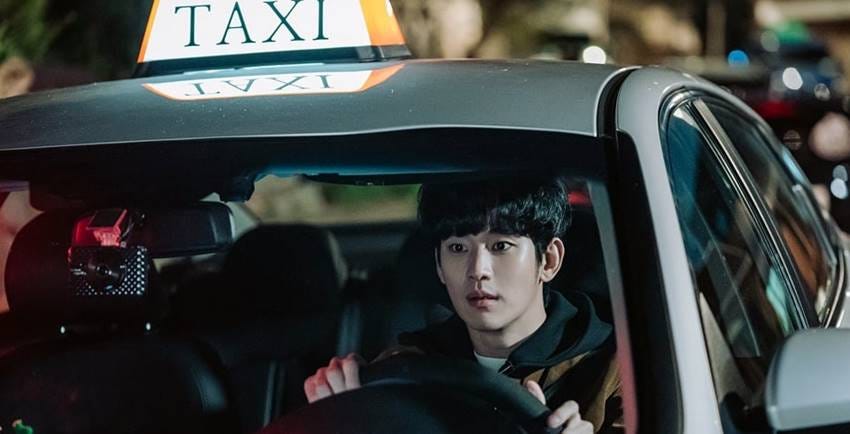


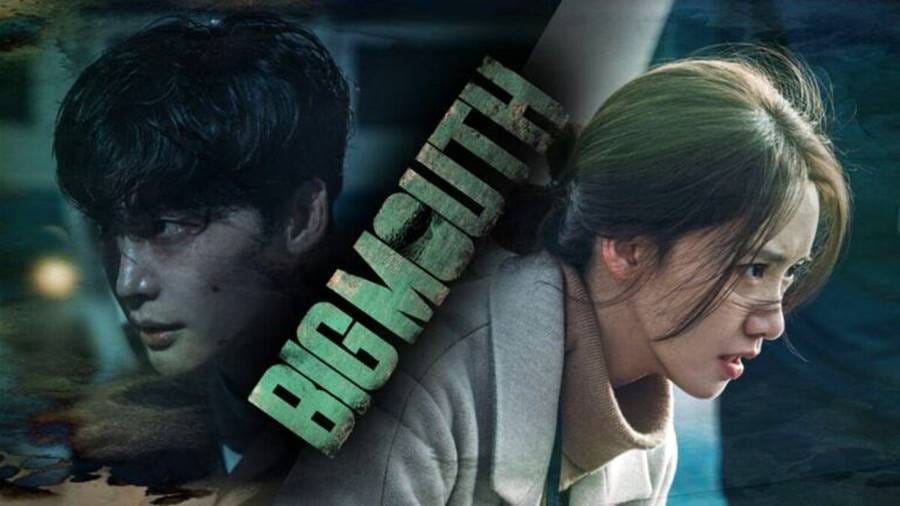
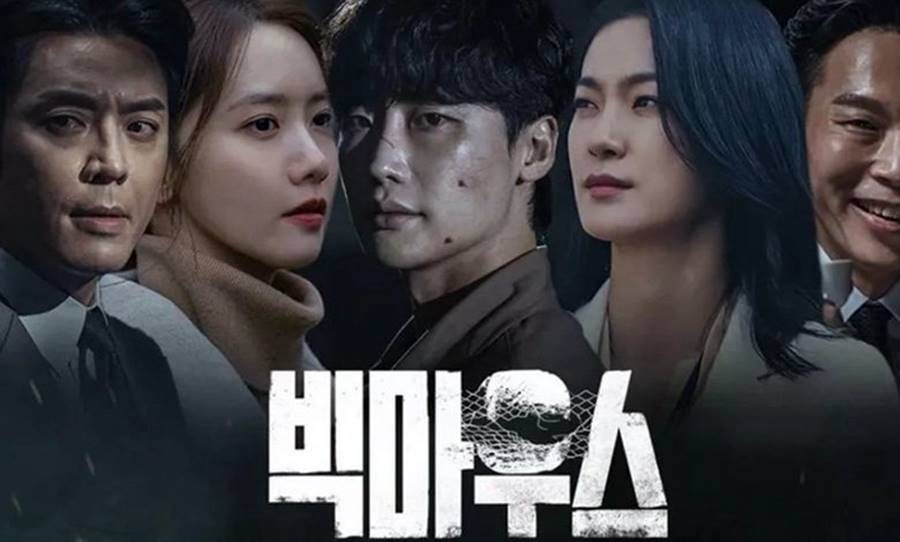
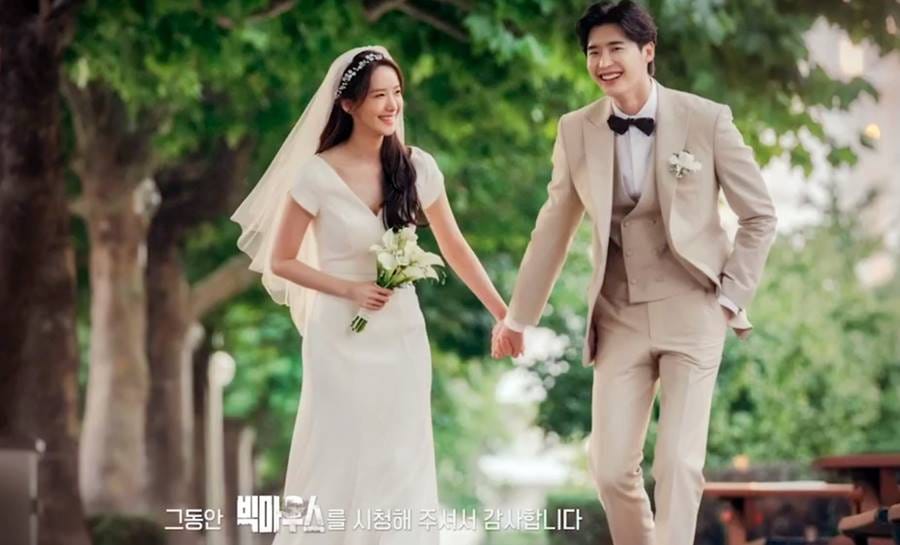
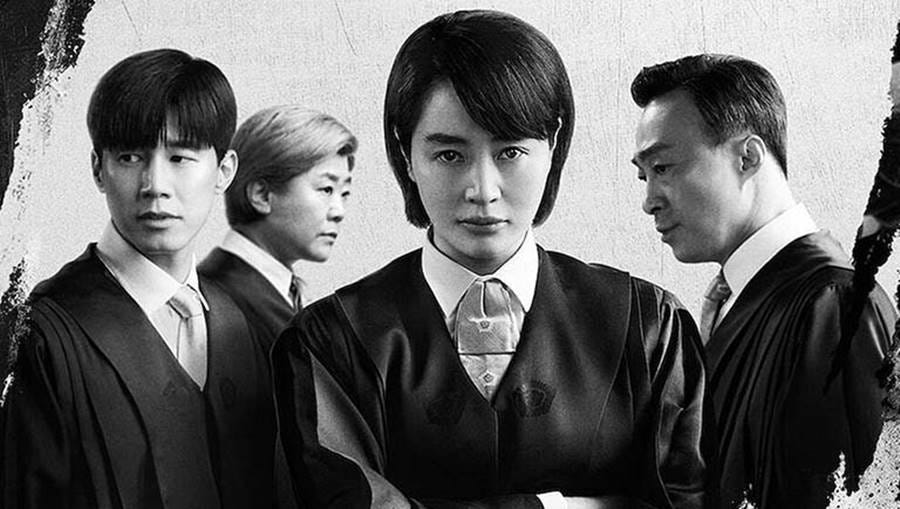
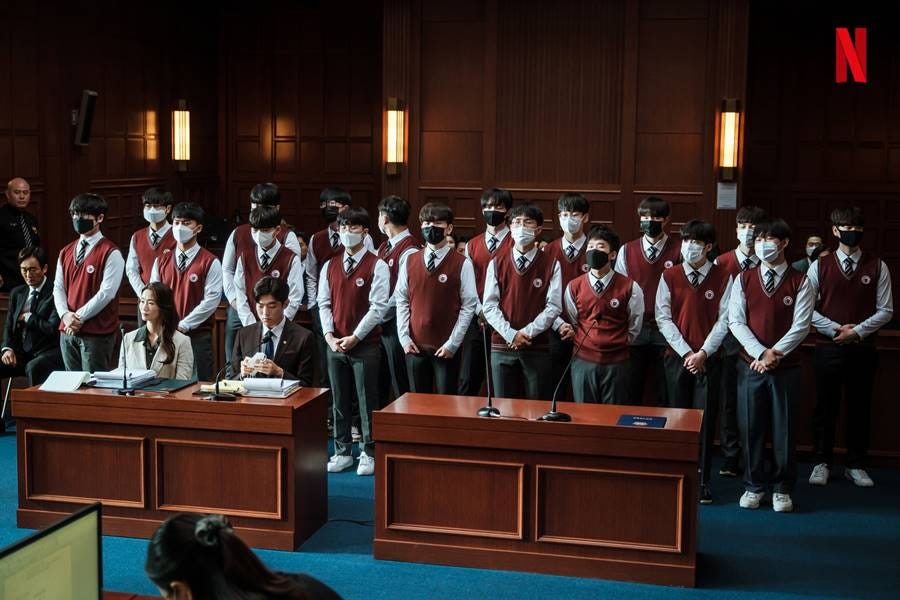
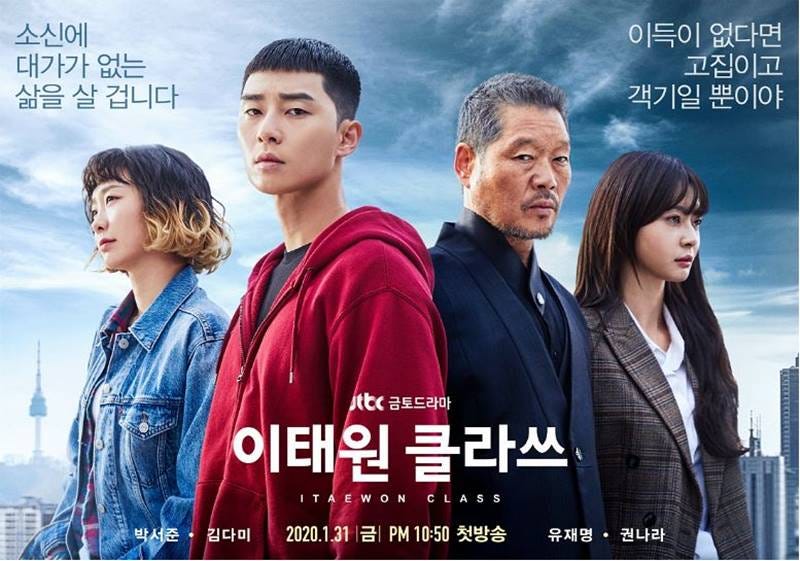



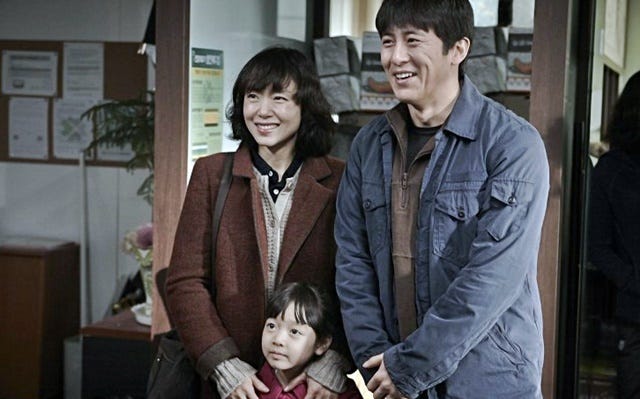
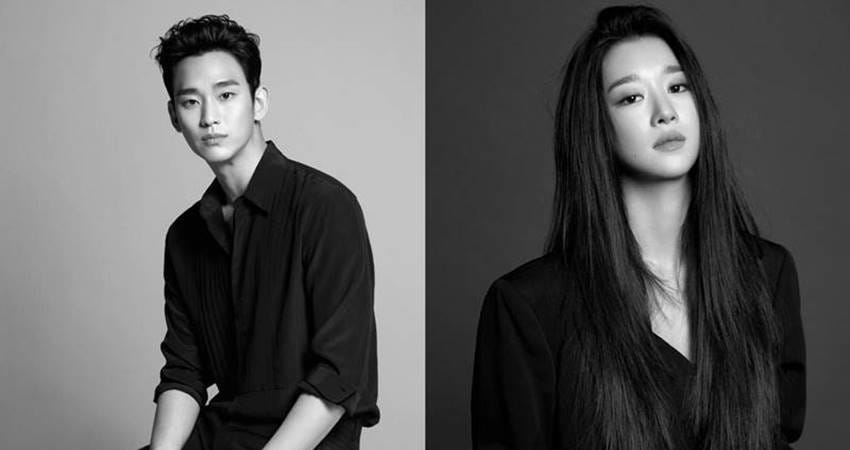
i started watching One Ordinary Day without knowing it was a remake but halfway through the first episode, i was like there's no way it's a coincidence that it is shot for shot ep 1 of HBO's The Night Of with Riz Ahmed. unfortunately that really raised my expectations for this version, and i say unfortunately bc i feel like i wanted more of a scathing commentary on the effects of social class/status in SK society, about the legal and penal systems, about drug issues, that were only touched on superficially (imo, especially compared to The Night Of which is absolutely phenomenal btw, the tension, the emotional rollercoaster, the sympathy/empathy Riz's portrayal of the protagonist)
I get the criticism of the main characters in Itaewon Class. And I do share them. But you didn't really touch on the appeal of this show that makes me (and others, I suspect) strongly drawn to it, and that is: geography. A sense of place. I just want to luxuriate in the setting. Itaewon as a place - a *character* - in this drama, reminds me so much of my experiences living in Asia and also Europe, being young, clubbing, taking in the nightlife, flirting, and soaking in the urban atmosphere. And this is what K-dramas do so well. Did we need all the baggage - the long backstory, the father's tragic death, the prison sentence, 7 years on a ship? LOL. NO! That's all ridiculous. But I sit through it, to experience viscerally being young, stupid, and partying in a vital urban area again.